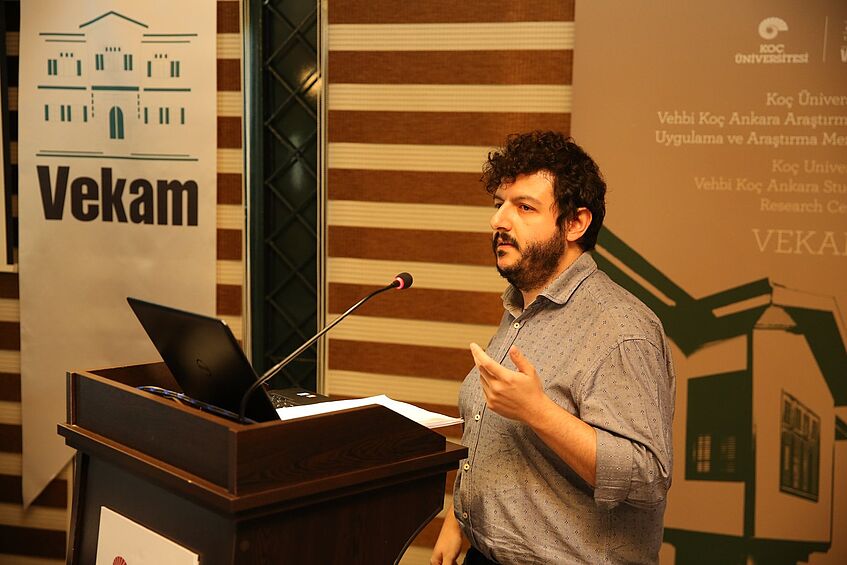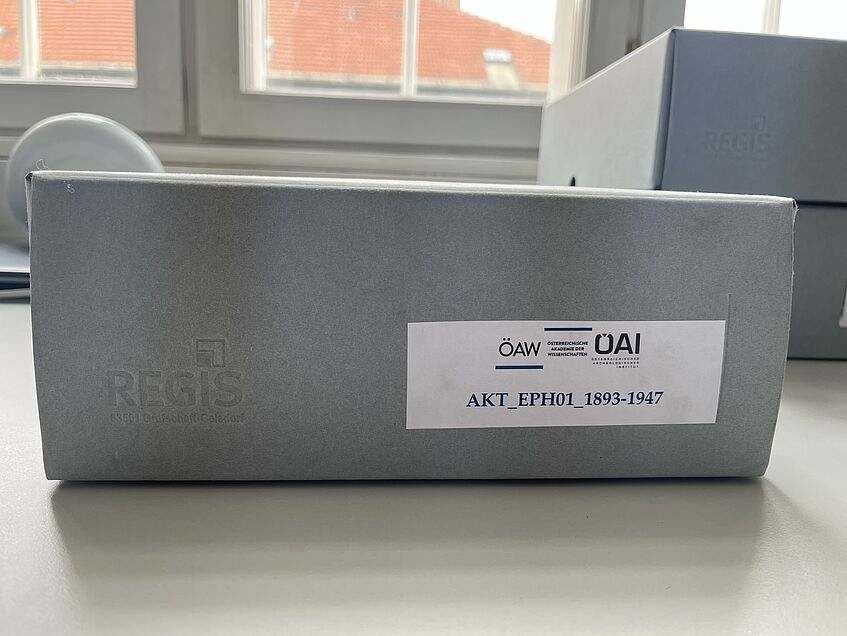Interview with Mustafa Kemal Baran (Andreas Tietze Fellow 2023)


Interview with Mustafa Kemal Baran (Andreas Tietze Fellow 2023)
Would you briefly introduce yourself?
I am currently an independent scholar. While my interdisciplinary research is grounded in cultural heritage studies, archaeology, and architectural history, my specific research is on the history and politics of archaeological practice with a geographical focus on the Mediterranean and the Middle East.
Before coming to Vienna, I was a postdoctoral research fellow at the Sevgi Gönül Center for Byzantine Studies at Koç University. I completed my doctoral studies in the Department of Archaeology and History of Art at Koç University, specializing in cultural heritage studies. I previously received my Bachelor’s and Master’s degrees from the Middle East Technical University, respectively, in Industrial Design and Architectural History. At the University of Oxford, I completed a second Master’s degree in Classical Archaeology, where I held the Ertegun Graduate Scholarship in the Humanities.
What are you currently working on?
Currently, I am working to publish my research findings in a series of articles shaped by the research themes I explored in my dissertation. My current research is concentrated on two projects. Building upon my dissertation research, I will investigate how different communities living near or within heritage sites in Turkey conceptualize and mediate ideas of heritage, place, and past. As a case study, I plan to work on the history of Ephesus in the 20th century, where archaeological excavations have been led by the Austrian Archaeological Institute, focusing on the local communities and their relationship with the ancient ruins and the landscape.
My second research initiative is to further the oral history project I started as part of my dissertation. I am currently working on the archiving process of the interviews, which includes over fifty hours of recordings with forty individuals who have had extensive experience with archaeological practice in Turkey and will be available online through the Koç University Library website. The next step in this research is to transform it into a collaborative digital humanities project that will allow other participants to contribute with additional oral history interviews through crowdsourcing. In the long term, I plan to combine the results of these two research projects with additional case studies from long-term excavation projects and produce a monograph that presents a comprehensive history and politics of archaeological practice in modern Turkey.
Why did you apply to the Andreas Tietze Memorial Fellowship?
I learned about the Andreas Tietze Memorial Fellowship when I attended the “Cultural Exchange and Heritage Summer School” organized by the Department of Near Eastern Studies, University of Vienna. At the time, I have been exploring research opportunities, particularly in places where I can conduct archival work to further my research. For my doctoral dissertation, I explored the history and politics of archaeological practice and heritage in Turkey based on a theoretical framework shaped by memory studies. This project comprised three main research themes; the development of archaeology as an academic discipline, the relationship between local communities and archaeological teams in the field, and the labor landscape in archaeological and heritage fieldwork in Turkey. As a next step, I intend to focus on place-based case studies where I can trace the history of archaeological practice in a specific excavation and discuss the themes I previously explored in my dissertation within a particular place. The Andreas Tietze Memorial Fellowship offered a great opportunity to work on the archive of Ephesus Excavations in Vienna and include Ephesus as a case study in my work.
How did the fellowship contribute to your research?
The fellowship contributed to my research in two main aspects. First, I found the opportunity to conduct extensive archival research in the excavation archive of the Ephesus Archaeological Project, which the Austrian Archaeological Institute has directed for over a century. The excavation archive is vast and covers materials from the beginning of the excavation in 1895 to this day as it is an ongoing excavation. Given the time limitations, I focused my research on the first half of the twentieth century with a specific interest in the times of both world wars. Additionally, I looked at related historical materials at the Archiv der Republik, part of the Austrian State Archives. The materials I examined have not been digitized and were thus only accessible in Vienna.
Furthermore, I was fortunate enough to work in the collegiate environment provided by the Department of Near Eastern Studies. This allowed me to share my research with other scholars who are experts in their fields and get feedback to develop my research. The historical materials I have surveyed in Vienna also laid the groundwork for long-term research collaborations in Vienna.
Last but not least, I have been an admirer of the built environment and architecture of Vienna since I learned about it in architectural history classes. While I first visited the city over a decade ago and returned numerous times, it was always for short periods. The fellowship afforded me ample time to explore the architecture in the city in detail, particularly the social housing projects like Karl-Marx-Hof that were built in the 1920s and 1930s, and enjoy the many great parks that became my office when I needed focus and tranquility.
Do you want to publish your research or present it to academic community? How will it go further?
I am planning to publish the research I have conducted in Vienna in two forms. First, I am working on an article that focuses on the archaeological practice during and in the aftermath of the First World War. The materials I have examined in the archives in Vienna offer invaluable insight into this topic. Secondly, in the long term, I am working towards a book project on the history of archaeology in Turkey in the twentieth century. I hope to include Ephesus as a case study.
